New Ferrari boss Fred Vasseur: ‘I’m a racer first’
Poisoned chalice perhaps, but new Ferrari principal Fred Vasseur couldn’t resist the call from Maranello. As he tells Adam Cooper, forget any five-year plans – winning starts now

Vasseur now heads F1's most decorated outfit
OrazioTruglio/ferrari
Is new team principal Fred Vasseur the man to steer Scuderia Ferrari to its first world championship since Kimi Räikkönen’s triumph back in 2007? The Frenchman is the first outsider to come in as boss at Maranello since his countryman Jean Todt exactly 30 years ago, and as such it’s hard not to draw parallels between the two.
The big difference is that back in 1993 the Italian team was at rock bottom, and it took Todt several years and the hiring of Michael Schumacher, Ross Brawn and Rory Byrne to finally turn things around. Vasseur in contrast joins a team that at times in 2022 had the fastest car, pushed Red Bull hard for much of the season, and generally left Mercedes far behind. However it fell short in areas such as consistency, power unit reliability and strategy.
There’s no denying that Vasseur has a much stronger starting point than his predecessor had three decades ago. However the marginal gains that make the difference between winning and losing are hard to realise, and that’s where the challenge lies.
Vasseur is the fifth Ferrari team principal to be faced with the difficult task of following Todt’s ‘Dream Team’ era. Stefano Domenicali, Marco Mattiacci, Maurizio Arrivabene and Mattia Binotto were all insiders, and ultimately all were deemed to have fallen short.
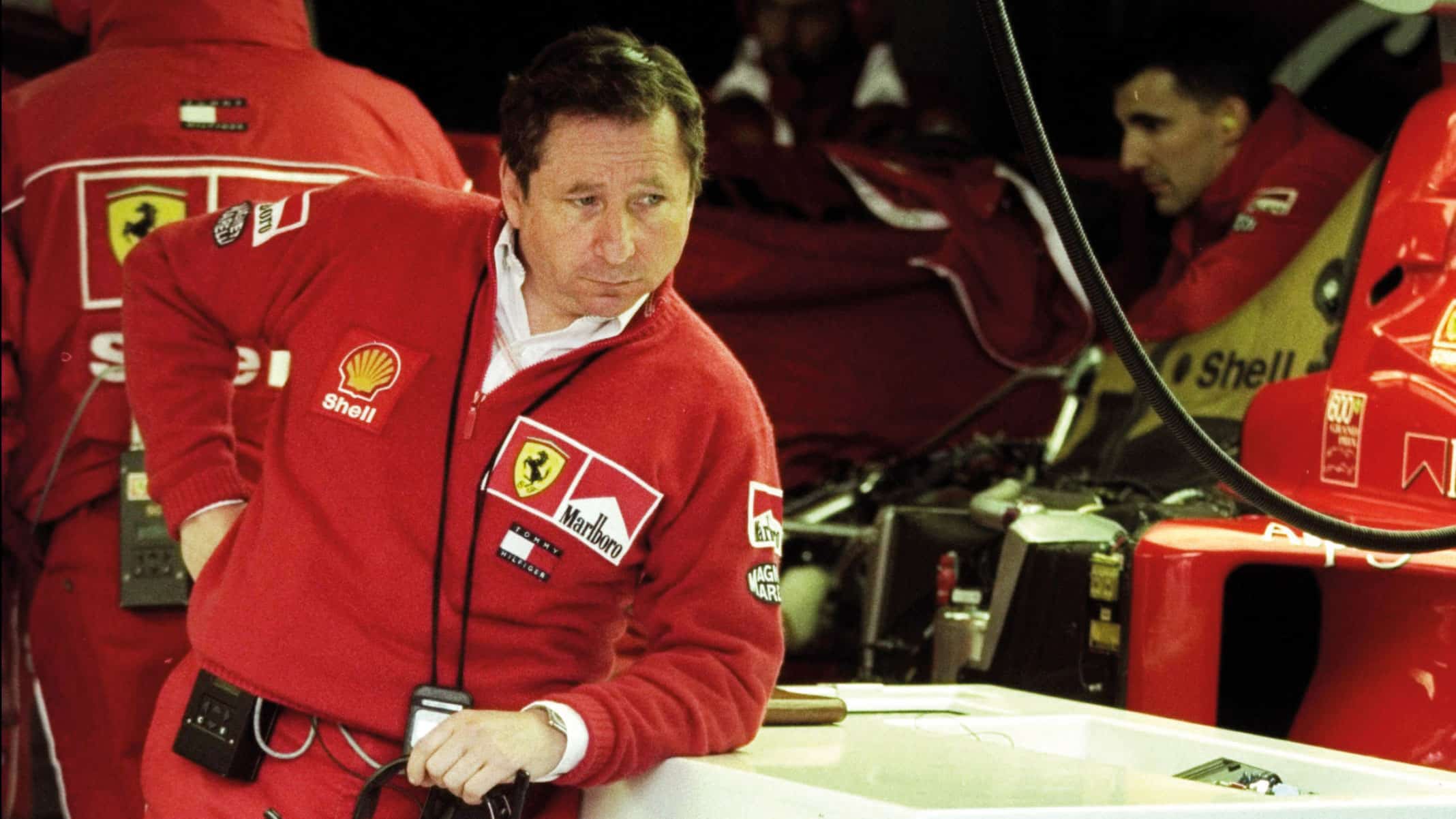
Jean Todt was given time to revive Ferrari
Getty Images
This time around Ferrari chairman John Elkann opted to look outside Ferrari and bring in someone with a fresh viewpoint and who has honed his leadership skills elsewhere.
The 54-year-old he chose is respected for the success he achieved in the junior categories with his ASM/ART teams, and latterly for turning around the once ailing Sauber and making the Swiss organisation attractive to Audi. He’s also been close enough to Ferrari over the years to have a good understanding of how the company works. He’s run several Maranello protégés in the lower formulae, notably Jules Bianchi and Charles Leclerc, and at Sauber he was both a Ferrari engine customer and a commercial partner of the wider Fiat family as the recipient of Alfa Romeo sponsorship – for which Elkann was ultimately responsible as the chairman of Stellantis.
He’s well connected across the paddock, and can count fellow team bosses Toto Wolff, Guenther Steiner and Otmar Szafnauer as close personal friends as much as rivals.
In many ways Vasseur is the perfect man for the job – but he had first to decide whether or not it was the perfect job for him.
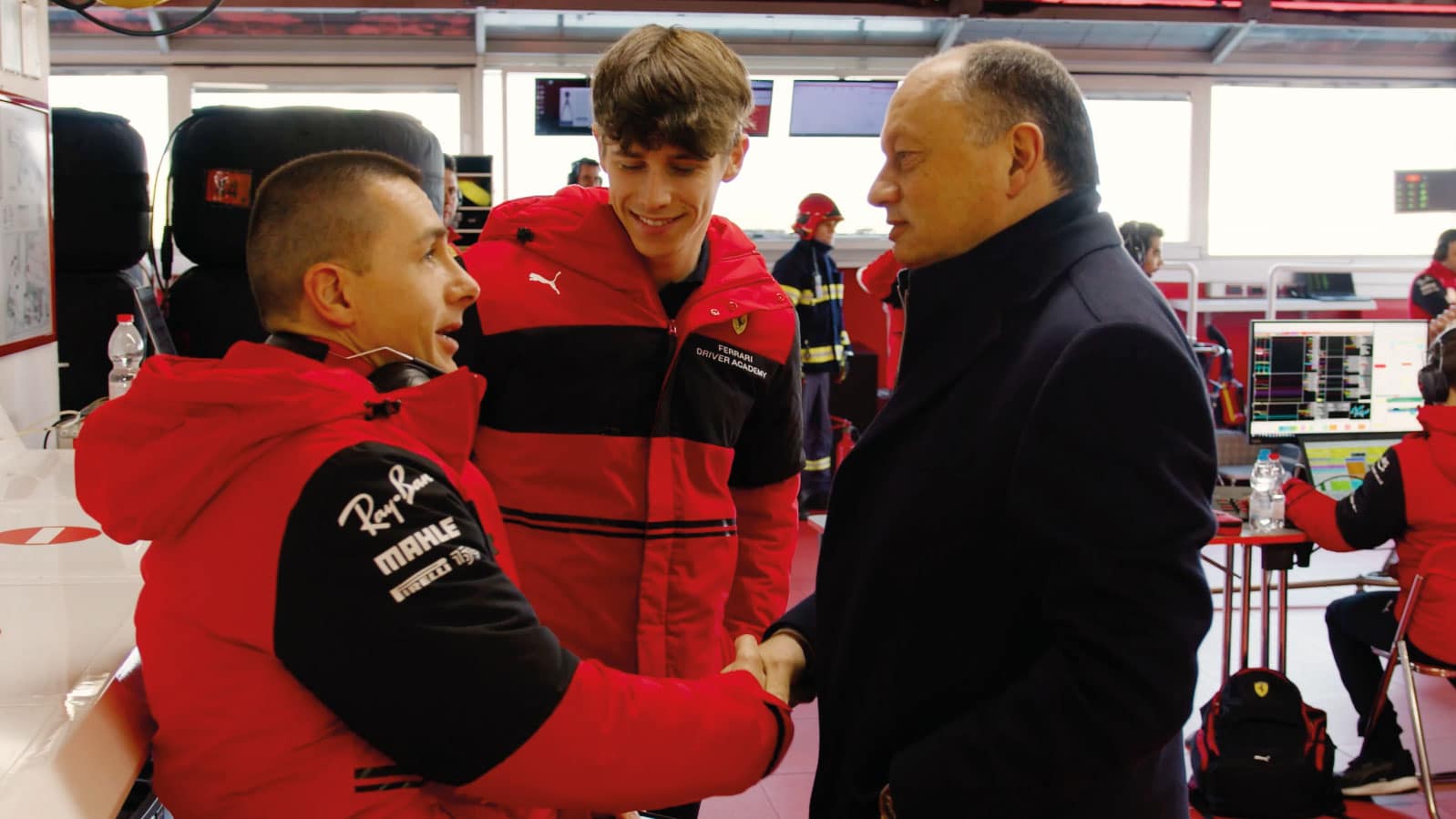
Fred Vasseur recognises there will be pressure at the Scuderia
“It came after Abu Dhabi when I had the first discussion with John Elkann,” he says. “Even if I was considering the pros and the cons, I think at one stage that you can’t say no to this kind of offer. It’s the biggest challenge available around the table of F1, but also a fantastic one. And very, very quickly, we agreed. It was difficult to leave Sauber. But this is life, and I will see them in Bahrain. I have a new challenge now.”
So what skill set does Vasseur think he brings to the job? “There is no single type of team principal in F1 but if you look between Toto, Christian Horner, my other colleagues, or if you have a look in the past at the guys who won the championship, their profiles are completely different. We are all bringing different skills.
“I spent the last 32 years of my life in racing activities, and I will bring perhaps a bit more of the racing aspect than some other team principals. The characteristic is perhaps that I spent more time than the others on the pitwall.”
He also brings an outsider’s perspective that should make it easier for him to assess what’s good and bad, and pursue change where needed. Binotto in contrast spent his whole working career at Ferrari, and knew no other way.
“I’ve only done a few weeks and I can’t have a crystal clear idea on everything and everybody in the company. What I would say is that so far that the collaboration in the company with the guys and with the management is very fluid, and very helpful. For sure you are joining the position with completely fresh eyes and fresh vision on the system and so on. On the other hand I have to discover and to know a bit more than a thousand people, which is not an easy challenge. Again, we all are different with the pros and the cons. But I think it’s probably more of an advantage.”
A new task for Vasseur at Ferrari is to stay within the cost cap – Sauber didn’t have the money with which to breach it. What he did learn while balancing the books in Hinwil was how to spend wisely, and that knowledge could help him to focus Ferrari on the right areas.
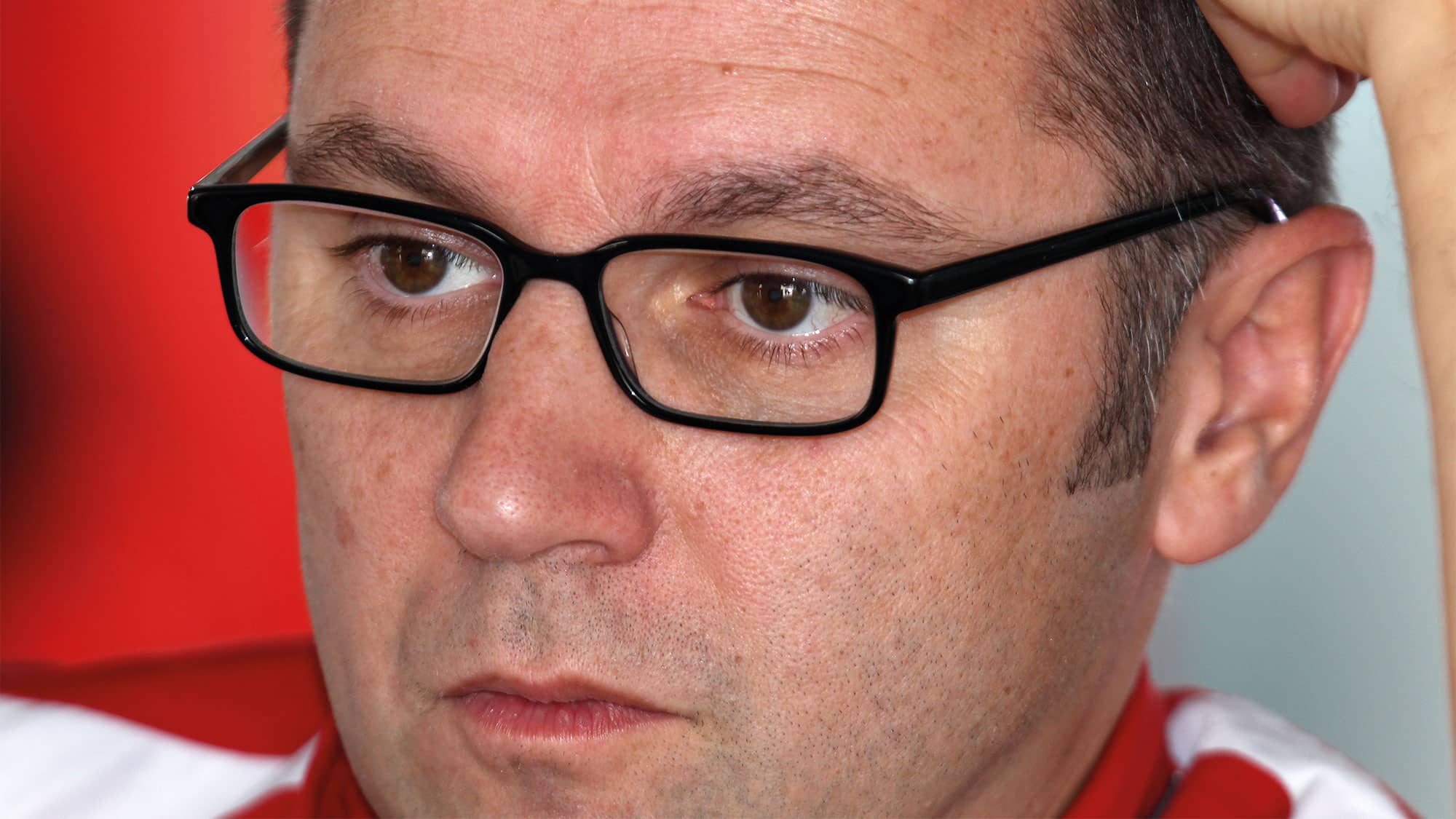
Former Ferrari team boss Stefano Domenicali
Grand Prix Photo
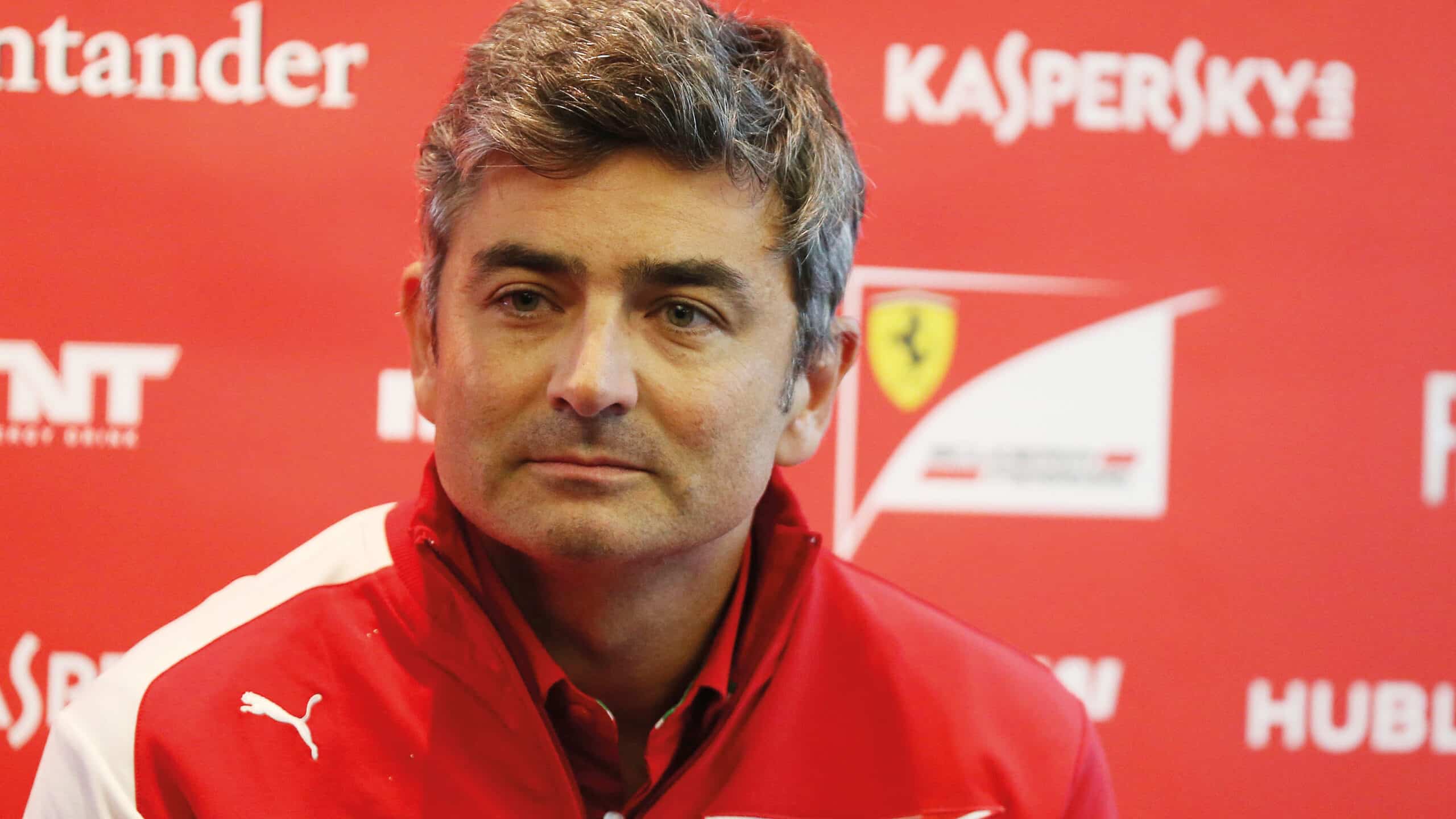
Former Ferrari team boss Marco Mattiacci
Grand Prix Photo
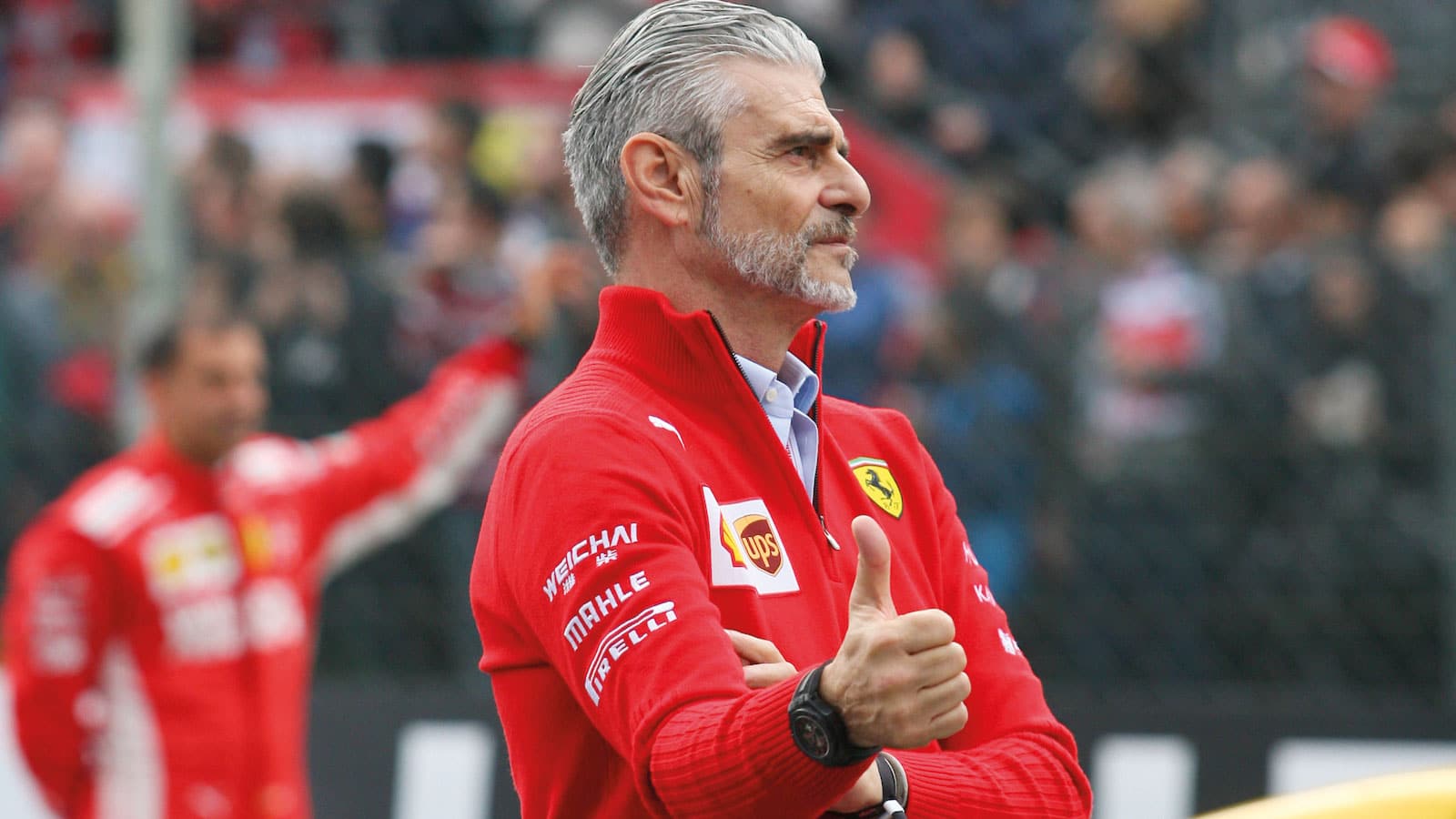
Former Ferrari team boss Maurizio Arrivabene
Grand Prix Photo
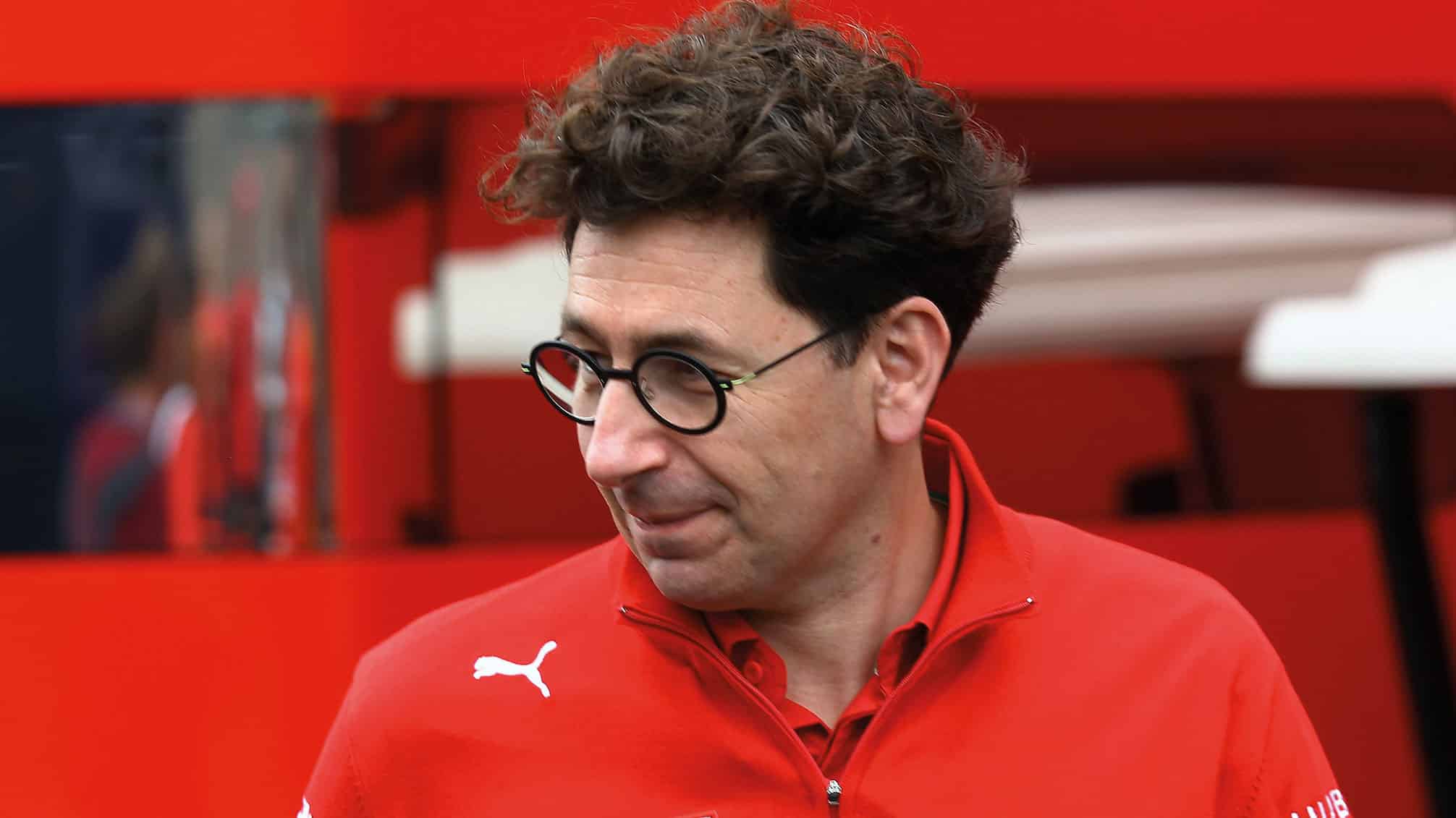
Former Ferrari team boss Mattia Binotto
Grand Prix Photo
“I’ve found that the system here was already quite efficient. But everybody’s coming with his own experiences, his own vision. And I raced in the past sometimes with much lower budgets, which means that I could have perhaps a different view on some things, and this could be helpful.”
In many ways being Ferrari team boss is a poisoned chalice. Whoever does the job has the weight of a whole country on their shoulders, and they are inevitably in the firing line when things go wrong. “This is the DNA of F1, to have the pressure. But we have to accept it. I had pressure for the last 30 years of my life. I had a discussion yesterday with someone and I told him that I can imagine that the highest pressure was for Manor, when they were fighting for a point, and the point would have been the yes or no for the future of the team.
“For sure we have the pressure that everybody wants to see the team winning again but this is a positive pressure for me. Perhaps I will say differently in a couple of months, but this pressure for me is one of the pillars of performance.”
Vasseur also knows that he will have a short honeymoon. “I don’t want a five-year plan. We need to do a good job next week. When you are at Ferrari and you were P2 last year in the championship the target can’t be something else other than to be champion. If you ask the same question to Toto, to Horner, they will say we want to be champion. If you are a competitor, you can’t have another target.”
Aside from overseeing any changes to the organisation one of Vasseur’s key challenges will be to keep the drivers onside. Leclerc drove for him at ART in 2016 and again at Sauber as reserve and race driver in 2017-18, but Vasseur denies any suggestion that their history hands any advantage to the Monegasque relative to Carlos Sainz.
“The human relationship between Charles, Carlos and myself is a good one, and we will be a strong team. We had good first meetings.”
He accepts that flashpoints are inevitable however – and dealing with them will be crucial, something that Binotto didn’t always manage.
“It’s difficult to keep two drivers happy, because they are strong competitors. They want to win races, and by definition, they both want to be P1. It means that at one stage you will have one driver more happy than the other. What we have to keep in mind is that we are there to win for Ferrari. And we need to be crystal clear with them before the season, and during the season. I’m a quite straightforward guy.”
One cause of tension in the camp last year were strategy calls that sometimes did Leclerc in particular few favours. “We have to improve. But it’s not just about the strategists, we are speaking about the strategy. It’s not so easy, and it will take me some weeks to understand exactly what the issue is before taking action.”
Todt proved a hard act to follow for all of his successors in the Ferrari top job. Despite the obvious parallels and his long relationship with the former boss’s family – Nicolas Todt is his partner at ART – Vasseur doesn’t want to look back.
“I don’t think that you can compare F1 of today and the F1 of the mid-1990s. It’s a completely different world. Jean did a mega good job with Ferrari. He was the most successful guy in our business.
“But you can’t compare 30 years later what could be the situation now. It’s always different. I don’t want to be focused on what’s happened in the past. I have to be focused on what will happen in the next two or three years.”
